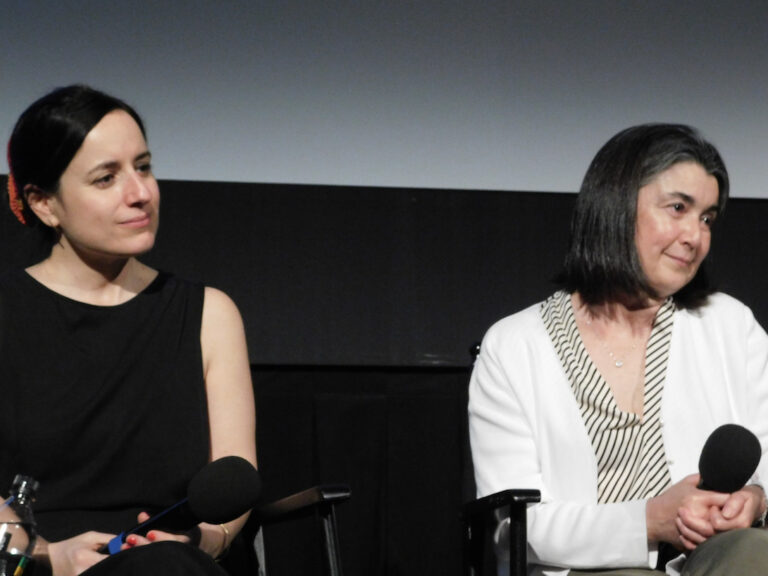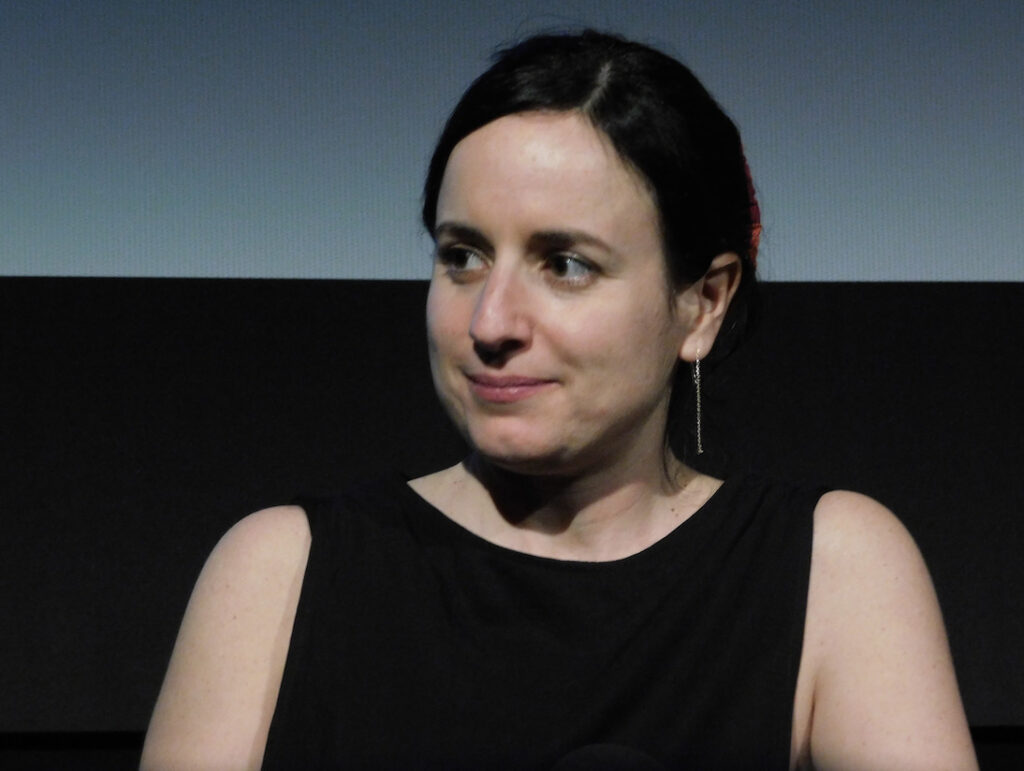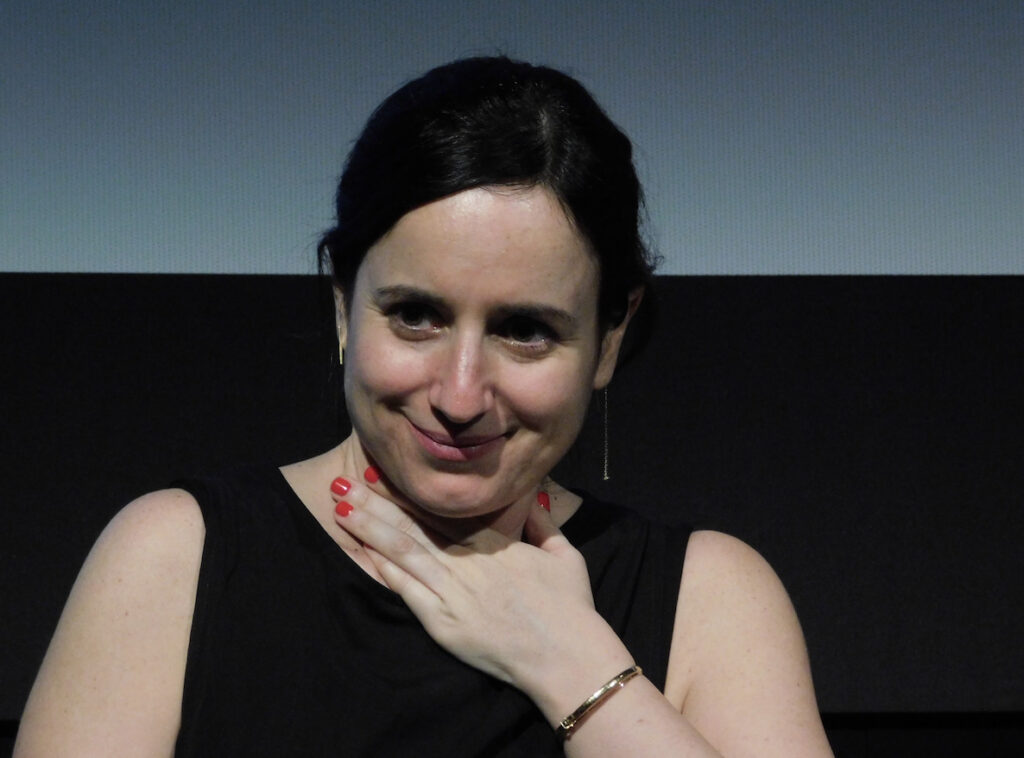
Synopsis : Augusto and Paulina have been together and in love for 25 years. Eight years ago, he was diagnosed with Alzheimer’s disease, and his wife has since become his caretaker. As one of Chile’s most prominent cultural commentators and television presenters, Augusto is no stranger to building an archive of memory, having been responsible for that herculean task following the Pinochet dictatorship and its systematic erasure of collective consciousness. Now he turns that work to his own life, trying to hold on to his identity with the help of his beloved. Day by day, the couple face this challenge head-on, adapting to the disruptions brought on by the taxing disease while relying on the tender affection and sense of humor shared between them that remains intact.
Genre: Documentary
Original Language: Spanish
Director: Maite Alberdi
Producer: Maite Alberdi, Juan de Dios Larrain, Juan de Dios Larraín, Pablo Larraín, Rocío Jadue
Writer: Maite Alberdi
Release Date (Theaters): Limited
Runtime:
Distributor: MTV Documentary Films
Production Co: Inmaat Productions, Fabula, Chicken And Egg Pictures, Micromundo Producciones, UTA Independent Film Group

Q&A with Director Maite Alberdi and Paulina Urrutia
Q: Where did the idea for making a film about Augusto and Paulina come from?
Maite Alberdi: It was very important for us to premiere this film in the US. So it’s amazing to see a full house for a Latin American filmmaker. This idea came to me when I was hired to take a class in a university where Paulina was working. I saw her with Augusto, in a work context, and saw how she brought him to work at the beginning of his diagnosis. I saw a couple that was in love and she was trying to take care of him together with her. It was the first time that I didn’t see a person with Alzheimer’s that’s not isolated from society. There was so much love that I wanted them to tell that love story and it was very difficult to convince Paulina and she didn’t want him to do the film. It took me a while and so it was very clear from the beginning that he wanted to complement that.
Q: How did Maite approach you and how was it making that decision to do this film?
Paulina Urrutia: She came to me and proposed making this documentary. I said, “That’s perfect.” Then I said, “hold on a minute.” Obviously, we had to discuss it with his children, friends and myself. When I first saw the film, that’s when I really understood why we did it. Through Augusto’s entire life, he recorded some very difficult times of our recent history and he also saw the flowering of the arts in our country. He never had any shame or fear in taking on this illness. Not only did he include us in his entire journey, but he has now included all of you as well. The wonderful thing is that this is really an exercise for our memories and that we’re very lucky to have had his genius and talent being able to put out a story like this.
Q: We see that during the shooting of the film. How much did that affect your original idea for the movie?
Maite Alberdi: It was, from the beginning, an independent film. The good thing was that as we never had financed over the years, we were completely free. I wanted to follow them so I started shooting without any support. So when the lockdown arrived, we didn’t have to deliver a film since the lockdown was very long. It took a year and a half, two years, and I decided to send the camera as an exercise of research, thinking that I will have material when the lockdown ends. I came back to the house and understood what was happening; that continued and I realized that the material had a level of intimacy that I would never have gotten. That obstruction of not being there at the end was a gift because even if I had all the access in the world, there are scenes that only they together could capture. It was unbelievable for me, but it was a kind of diary between us when she was telling me what was happening and we were not thinking of scenes. I was completely improvising how to do it. I showed her how to use the camera but she never learned [laughter].

Q: It is a month to the 50th anniversary of the overthrow of the dictatorship in Chile, which marks a watershed in Latin America and the world in terms of politics. What was the importance of dictator Augusto Pinochet’s legacy in this historical moment and what do you want the film to bring in Chile?
Maite Alberdi: With that legacy, it’s important to understand the role of the journalist. I am nostalgic about the way to communicate the historical issues and to welcome back democracy. Augusto [the journalist] related to people who he interviewed with so much love. It’s something of an approach in the media that we don’t see as much today. For me, it’s a kind of legacy that you can feel in the film. It’s in the material that I saw. There’s a legacy for me in his speech at the opening of his book when he said that it’s very perfect for this moment in Chile. He said, “dates are not important, numbers are not important. Commemorative acts are not important if we don’t build our mornings for the emotion.” And we see a guy whose memory has been lost, but his body always remembers and he remembers the pain. So it’s a year that we have to remember the pains and the feelings, not necessarily the numbers or the facts.
Paulina Urrutia: I think his particular way of doing journalism and his journalistic ethic, his commitment to truth, his commitment to truth especially now allows us to find it like he said in his speech, allows us to find ourselves in, in a different way to stop the polarization that is now happening in our country.
Q: Did he have Alzheimer’s when they got married?
Paulina Urrutia: Yes, he had been diagnosed for two years already when they got married. It became an obsession to him, for us to get married because we had been together for a very long time and we still hadn’t gotten married. In Chile, in terms of all the paperwork and any legal matters, if you’re not married as a couple, you don’t really exist. It was also a really beautiful gesture on his part. He was also worried about that. As somebody from Chile, I feel like the movie came at a really important time. we’re going to be commemorating 50 years of that. Augusto really was a witness of that time and he was somebody that fought for democracy and human rights. he’s part of that history and doing this will really honor a lot of people and all of the things that happened during that time.
Q:How hard was it to get access to archival materials to be adapted to the film? What are your thoughts on how to preserve your own films now in this digital age?
Maite Alberdi: It’s an important question that we’ve been discussing these days. I always said that this film is a collected registry; it’s my camera, but it’s a camera and also the archives. Since he was a really public person, I thought it was going to be easy to get archives but it was very difficult. I think that as society, we have so many focuses — like the compulsion to register everything, but it’s not to archive and put order to the historical images. They were difficult to find and have in a good quality. There are a lot of the archives but the film has videos that Paulina found in furniture in the house.
I was asking, “Please, give me material.” For example, the interview with Raul was in her house, that speech which opens the book was so important to the film; we had two months before it was finished. It was like archaeological research which I believed that I needed. At the beginning, I was completely obsessed with it. This is a love story. I didn’t want to make it the Augusto legacy film. Other people are going to do that. I realized that this love story is about a couple completely committed to their jobs.
It’s committed to Augusto’s obsession. He was so concerned about all the preserved memories that it had to be part of the film. That’s why we tried to find everything but, I’m sure, a lot of archives are going to appear now — archives that I didn’t see. I tried for two years to find everything but it was not easy. As a filmmaker, I am concerned about making a film and delivering it but not [only using] archives all the time. Augusto’s book is going to be out before September, and it really doesn’t exist outside the museum of memory. It’s that exercise of memory that I was speaking about before. We see Alzheimer’s at the forefront, but it’s not really a film about Alzheimer’s. It’s really beautiful that we’re able to show that this is a illness like any other that we all might have to go through. We’re all going to pass away at some point and it shows us that we can live with it and we can live with them with dignity.

Q: For the director, how did the experience of making this film change you?
Maite Alberdi: As a filmmaker, this production taught me that in my previous film, I was really obsessed with [the idea] that people speak about “films” and not about documentaries. I hate it when people say “Is it a film or a documentary?” It’s a film that’s from reality, don’t try to separate them. I was really concerned about the language and images and to use language that’s not only for documentaries but also for fiction. In this case, I used all the conventions of documentary that I’d never used before, like with the interviews and archives.
The image is not, well it’s completely out of focus almost all the time. I learned that the most important thing here, in the end, is life and it’s the thing that you see on the screen. I am very grateful for that and as a person that experienced this from being near that relationship. I have always said that, for me, cinema is [from the] fabric of experience. I spent so much time with these people that I really learned how you can reconstruct a relationship and that there isn’t only one way to be a couple. The truth is that what you see really comes from my ability to select and edit with a lot of respect, care, and to put it in that footage in the film.

